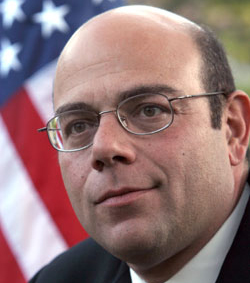BY GAREN YEGPARIAN
Great news! Did you hear? Two years, 77,000 people charged with terrorism, more than 150,000 fired public sector workers, an invasion-cum-occupation of Syria, massive repression and bombing of civilian population, who-knows-how-many-deaths, and seven extensions of Turkey’s state-of-emergency (a polite way of saying martial law), it’s finally over.
The Los Angeles Times dedicated its third page on July 19 to this “news” that Turkey’s state of emergency had not been renewed (which is where the statistics above come from).
But what really changed? Is Turkey really any safer than it was? Was it even really unsafe, except for the turbulence created by its president for political gain? Remember how quickly blame was placed on the Gulenists and how lightning-fast tens of thousands were ferreted out? Of course that was because just a few years before, Erdogan and Gulen were bosom-buddies busily re-Islamifying Turkey’s state structures. In short order, there was no real reason left for the special powers available to the authorities under martial law. But it suited Erdogan’s purposes to be able to squeeze the Kurds and scare his sector of Turkey’s electorate to shore up support for his presidential ambitions.
What has happened, really, is that Recep Tayyip Erdogan has finally achieved his goal. He has become the latter day Sultan of Turkey, following in the “proud” and bloody footsteps of Abdul Hamid II.
Last year, he engineered massive constitutional changes which gave very enhanced powers to the president of Turkey while eliminating the post of prime minister and neutering the country’s parliament. On June 24, in early elections he called, Erdogan wrangled a 52.55% first-round win and became the first president under the new rules.
Now, he can run the country pretty much as he pleases and largely unchecked because even the judicial branch of government has become highly susceptible to the executive branch under the new constitution.
What can we expect?
It seems to me that there will be some restored stability in Turkey for the next eight or nine years. That’s because each term of office for the president is now five years, and Erdogan will undoubtedly (barring some massive, unforeseeable, political earthquake) get reelected, to a second, and supposedly final, term. However, I suspect we will be like Zimbabwe’s Robert Mugabe (37 years AS president until he was recently dumped) and want to keep getting reelected. And, like many African presidents, he will probably find a way grant his own wish. Maybe he will emulate Putin and take a brief break while effectively keeping power in his hands, then return to office formally. Either way, he would have to finagle a change in the two-term lifetime limit currently found in Turkey’s constitution.
As that time nears, opponents will start jockeying for advantage while Erdogan will restart his machinations, likely including another round of repressive policies after a brief period of loosened reins while his hold on power is uncontestable.
Externally, no one should expect much in the way of positive developments. He will no doubt continue Turkey’s policy of supporting Azerbaijan’s aggressive actions, continue Genocide denial, keep messing around in Syria, continue saber rattling over Greece’s Aegean islands, not make significant progress in the way of “joining” Europe, maintain the occupation of northern Cyprus, not release the jailed American minister (he will probably continue to ask for a “trade” in which Fethullah Gülen would be repatriated from the U.S.), nor give satisfaction to Norma Jeanne Cox, the American teacher tossed out of Turkey about whom Harut Sassounian just wrote. The only place some “progress” might occur is with Israel. Erdogan may not feel as great a need to keep burnishing his “Islamist” credentials by constantly picking fights with that country.
There you have it. We are probably on the cusp of a reign of error, sorry, Erdogan, until he dies in office. That could be quite a few years from now since he is only 64 years old.
What do you think Armenian policy towards Turkey for the duration should be? What modifications and adaptations do you expect might gain us some advantage in our ongoing struggle for justice?



















































